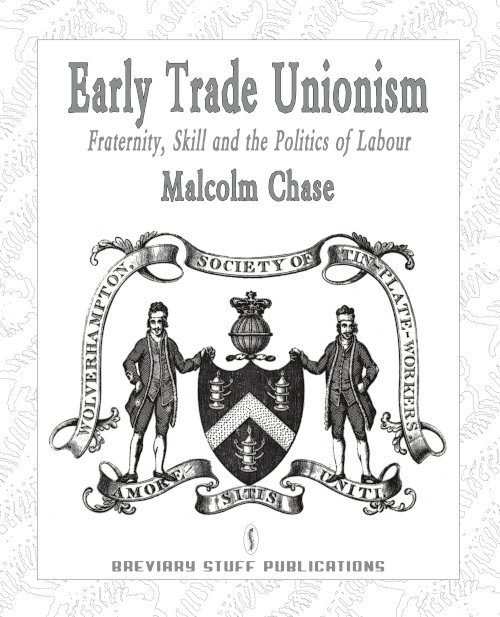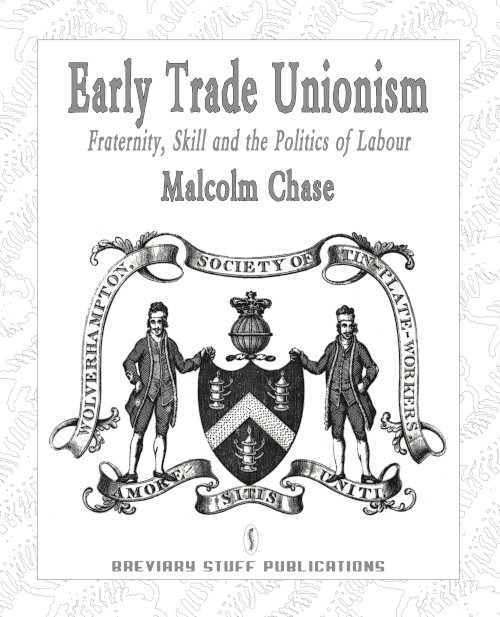- Acknowledgements
- Abbreviations
- Introduction
- 1 Covins and Fraternities: a 'Prehistory' of Trade Unionism
- 2 Trade Associations in the Age of Manufactures
- 3 'No Strangers to the Rights of Man’?
- 4 'A Young and Rising Commonwealth'
- 5 Across the Frontier of Skill: General Unionism
- 6 Trade Unionism and the Early Chartist Movement
- 7 Out of Chartism
- Conclusion: Trade Unions in the Early 1860s
- Bibliography
- Index
Malcolm Chase – Early Trade Unionism
Fraternity, Skill and the Politics of Labour
£17.00
Once the heartland of British labour history, trade unionism has been marginalised in much recent scholarship. In a critical survey from the earliest times to the nineteenth century, this book argues for its reinstatement. Trade unionism is shown to be both intrinsically important and to provide a window onto the broader historical landscape; the evolution of trade union principles and practices is traced from the seventeenth century to mid-Victorian times. Underpinning this survey is an explanation of labour organisation that reaches back to the fourteenth century. Throughout, the emphasis is on trade union mentality and ideology, rather than on institutional history. There is a critical focus on the politics of gender, on the demarcation of skill and on the role of the state in labour issues. New insight is provided on the long-debated question of trade unions’ contribution to social and political unrest from the era of the French Revolution through to Chartism.'It is impossible to do justice to such a broad-ranging work in a short review … he has offered a timely reconstruction of our current knowledge in a thoughtful, innovative and coherent manner. It is a book that deserves to be read from a series which will undoubtedly become an important force in re-invigorating the study of Labour History.' English Historical Review
'For far too long, students of late eighteenth- and early nineteenth-century trade unionism in Britain have been without either a single sure guide to the most important contemporary issues in the field or a reliable introduction to its literature. … Chase has now admirably filled this significant gap. … Chase has written an excellent book. … a fine narrative of the early history of trade unionism and the most up-to-date and authoritative guide to the recent literature and debates in the field.' Economic History Review 'This is an excellent book. Malcolm Chase has taken on the task of surveying the plethora of work which in the last twenty years has transformed the study of early British trade unionism and has succeeded with style and real clarity. In a text which rarely falters, he displays not only impressive powers of synthesis, integrating a surprisingly wide range of material, but also a deal of his own new and thoughtful research. As such it fills a major gap on the history shelves.' International Review of Social History 'Chase very effectively draws his examples from across the country. Scotland, Wales and Ireland are not ignored. He is particularly good at summarising some of the important areas of recent debate. Chase goes well beyond summarising the literature and has valuable original insights.' Labour History Review 'A full-length history of early trade unionism in Britain is certainly needed … Chase is admirably well qualified for the task that he has now completed. … An excellent book concludes with an index that is excellent in itself.' Historical Studies in Industrial Relations 'In a field that is known for emphasizing moments of conflict, Chase's study, which focuses more on continuity, is an excellent corrective. … (his) analysis of the workers' fraternal organizations is trenchant and up-to-date, with very little to criticize. … Chase maintains an interpretation unique enough to be truly thought-provoking and written vibrantly enough to be truly engaging.' Albion '… an important book. … Chase's economic style and structure enable him to cover a broad agenda...' Victorian Studies




